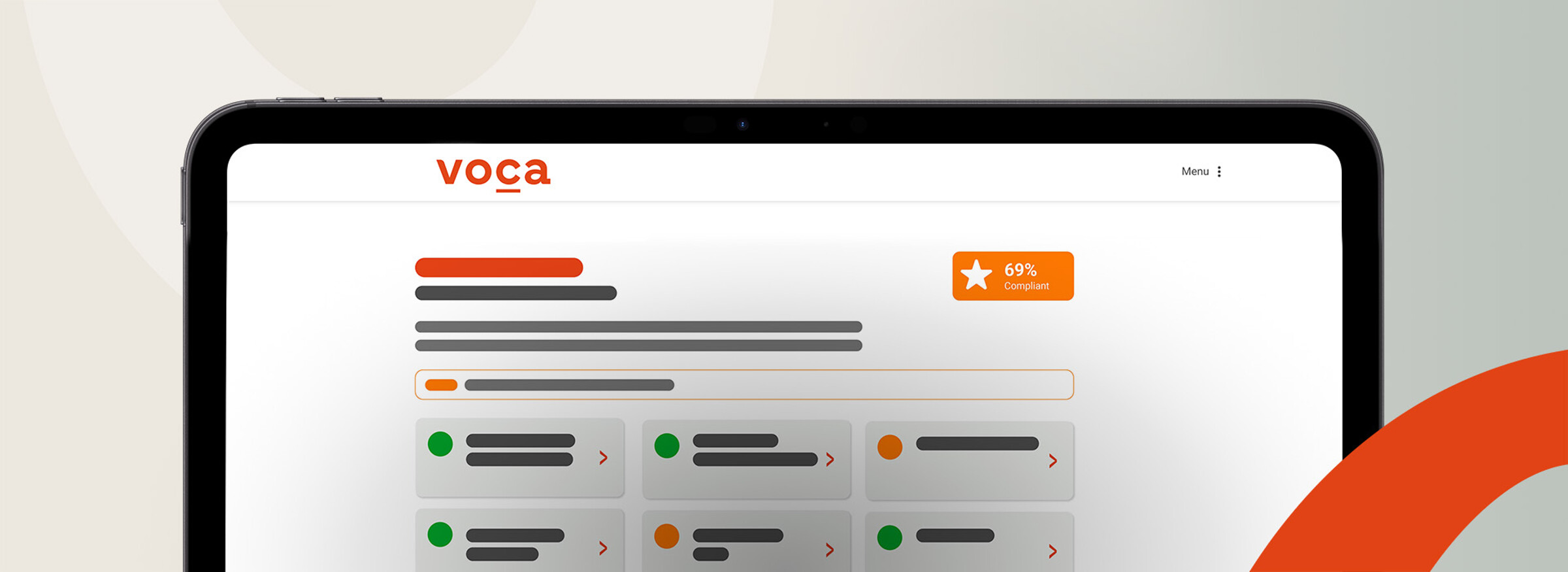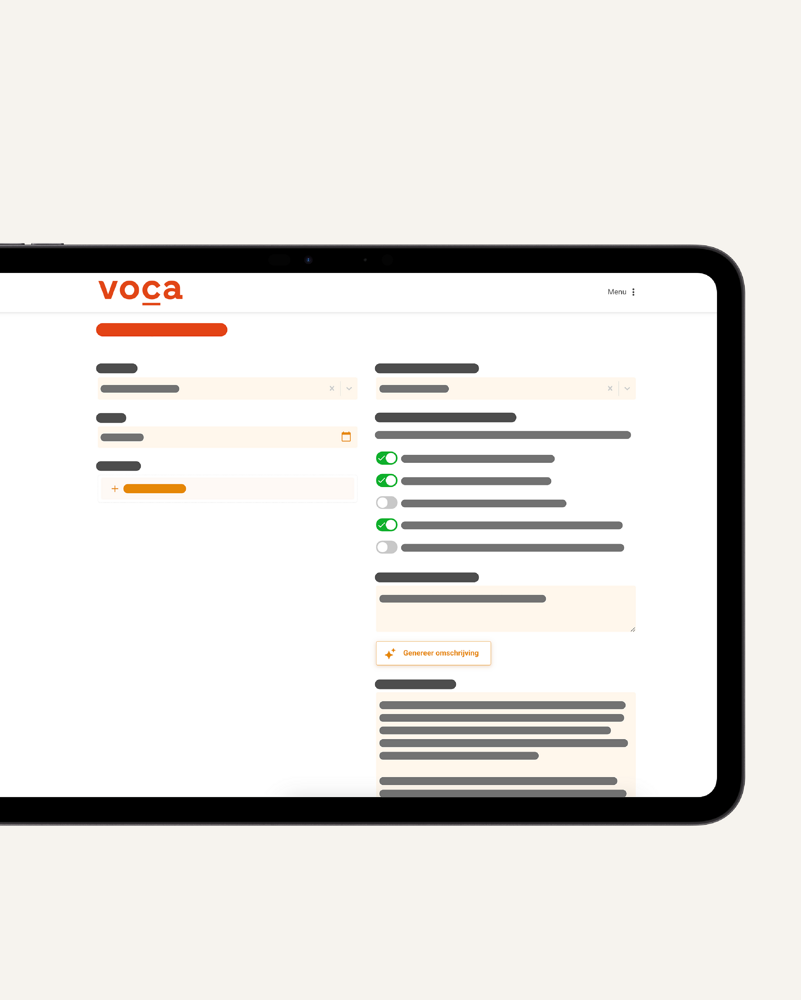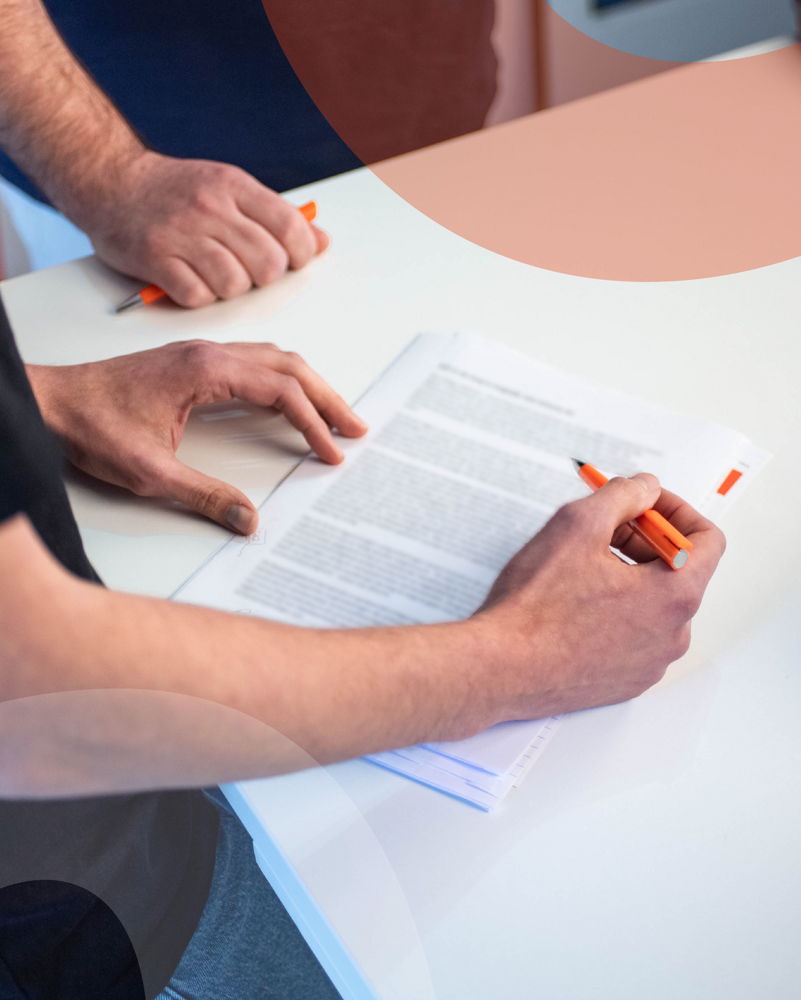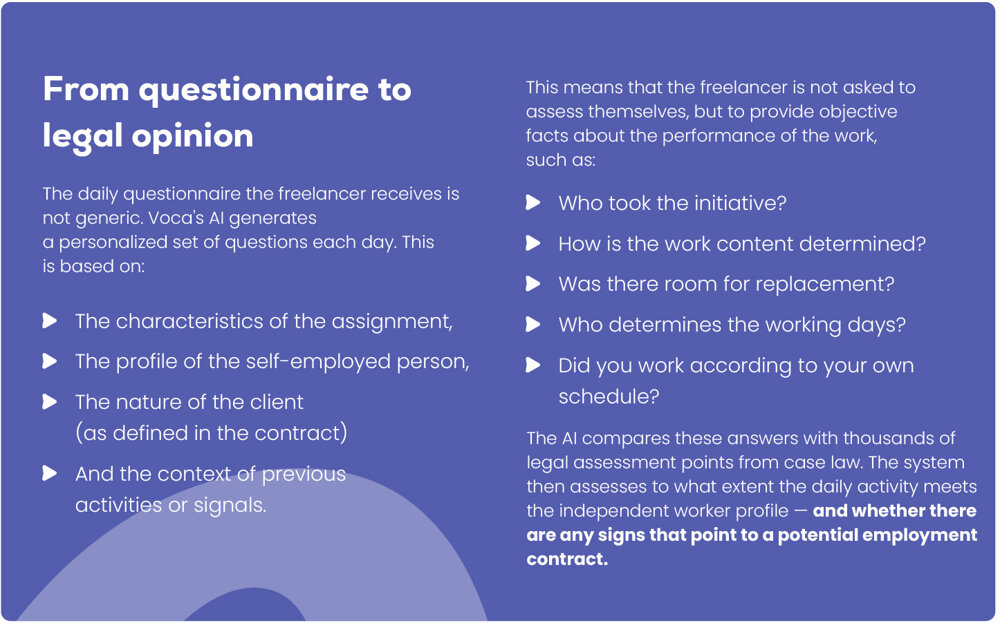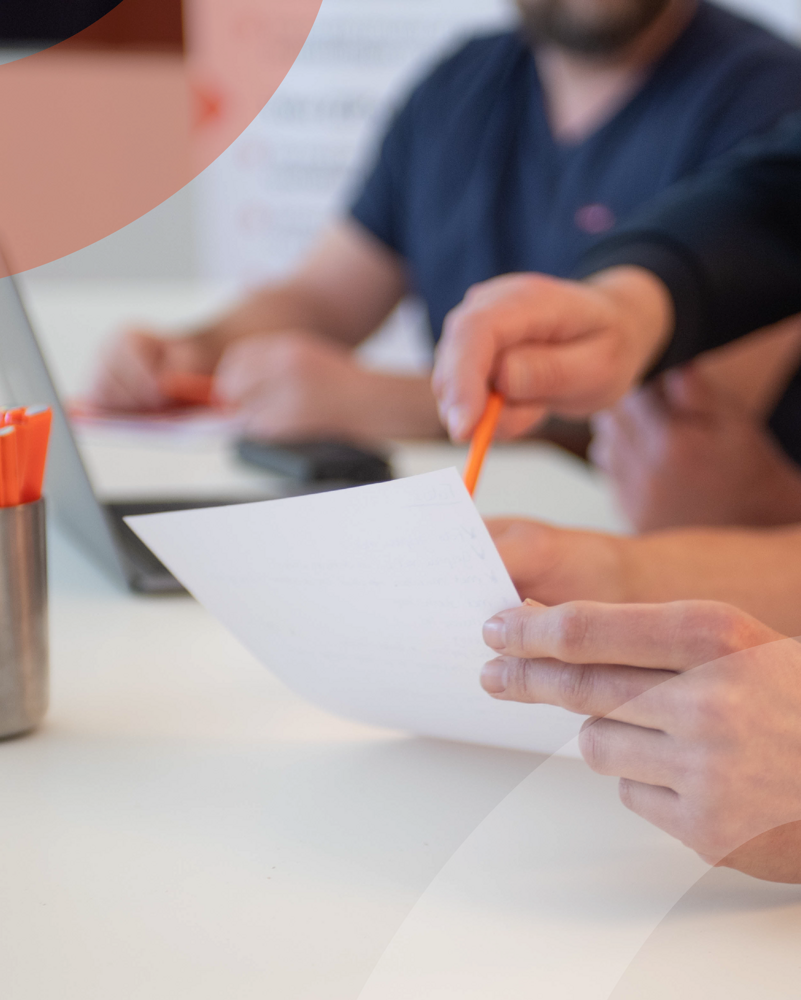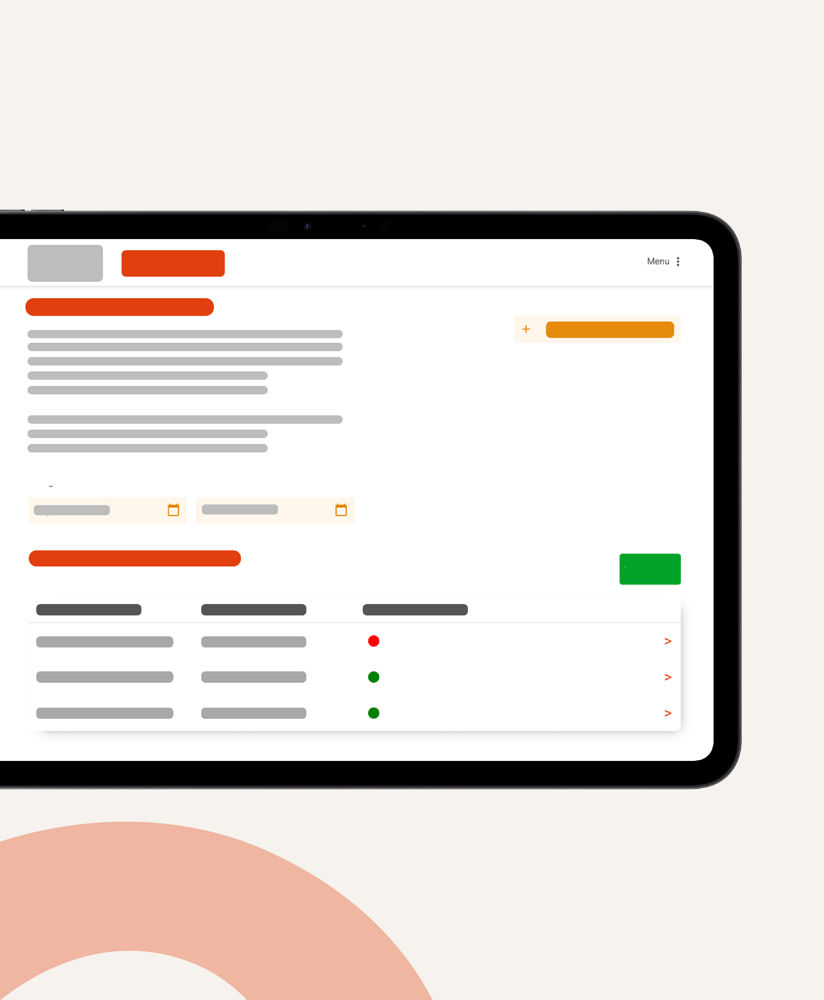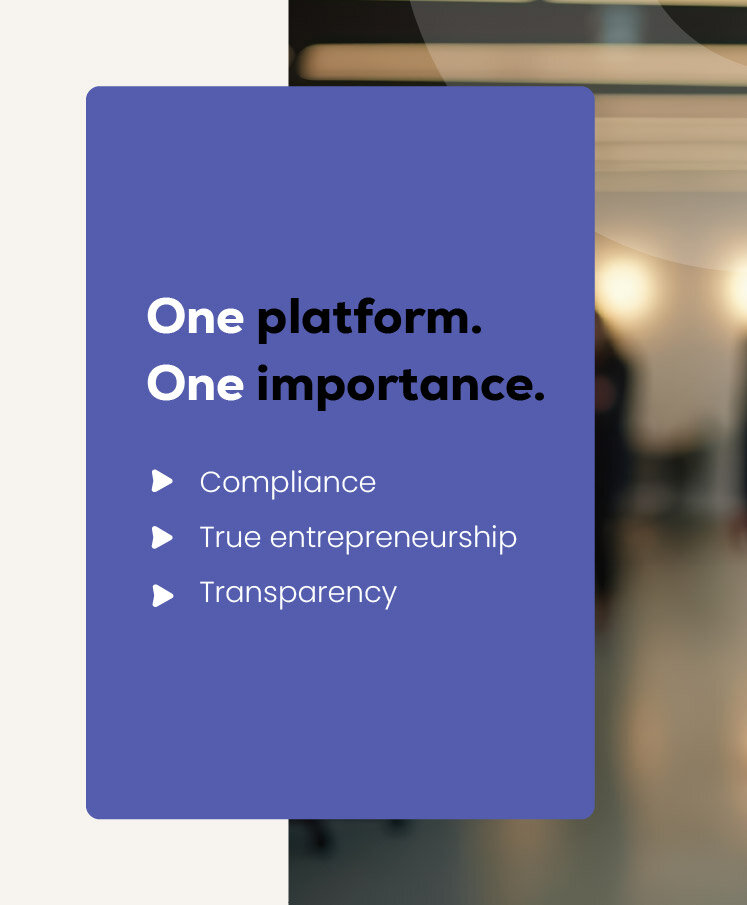compliance
Labor market in transition
In a labor market that is becoming increasingly regulated—and where the line between true independence and false self-employment is fading—Voca offers a groundbreaking alternative.
Voca is more than a digital platform that connects independent professionals and clients. It is a governance-driven model, supported by artificial intelligence, that evaluates each day, each assignment, and each professional to determine whether the collaboration remains within the legal boundaries of entrepreneurship.
Voca enables truly compliant collaboration with and as an independent professional.
The core of this approach is an innovative AI framework that makes legal complexity accessible and practical.
By analyzing working relationships daily in the context of current case law, Voca provides both clients and independent professionals with control over compliant collaboration—without relying on traditional models based on declarations, certificates, authority structures, or intermediaries.
Daily validation of independent status
At Voca, there is no static, periodic, or superficial control, but rather a continuous and dynamic assessment of the working relationship. Every independent professional working through Voca accounts for their work on a daily basis using an intelligent, AI-driven questionnaire. This accountability is based on the structure used by the Supreme Court in its Deliveroo ruling: a legal framework in which nine elements are central to determining whether a situation reflects genuine entrepreneurship or false self-employment.
These elements include the degree of authority, organizational embedding, freedom of substitution, how assignments are acquired and carried out, and the entrepreneurial character of the professional. Instead of assessing these criteria manually, in advance, or periodically, Voca uses AI to evaluate these elements daily and automatically, based on the freelancer’s actual working day.
AI that learns from case law
What makes the Voca AI engine unique is that it is trained on all relevant case law since the Dutch Supreme Court’s Deliveroo ruling (March 2023). Every new judgment regarding the qualification of a working relationship—whether from healthcare, the platform economy, logistics, or hospitality—is translated and interpreted through the Deliveroo framework and added to the AI database.
This creates a continuously learning system that can evaluate a freelancer’s daily accountability not only against an abstract legal standard, but also against the most recent and cross-sector legal practice of the courts.
Although this model is currently trained on Dutch case law for the Dutch market, the structure itself is jurisdiction-agnostic.
Case law from any country can be added in exactly the same way, mapped onto equivalent legal criteria for assessing independence.
This means the model can be adapted to reflect:
- national labor law in different countries,
- sector-specific case law, and
- European regulatory frameworks, including the Platform Work Directive and the Digital Services Act.
In other words:
Voca’s compliance logic scales with legislation — regionally, nationally, and internationally.
From daily accountability to a control model
These daily analyses do not stop at the individual level. Each month, the accountability data is aggregated per client. Based on this, the AI generates a monthly risk report that indicates:
-
Which freelancers consistently show higher-risk patterns,
-
Which elements (such as degree of authority or method of remuneration) require additional attention,
-
Which control measures are advisable.
The result is a legally substantiated control model that provides monthly insight into how the client actively contributes to preventing false self-employment.
Not reactive, but preventive, short-cycle, and data-driven.
Difference compared to traditional models
Where traditional intermediaries often rely on standardized contracts or paper-based declarations without real verification, Voca demonstrates that there is a different way. The combination of:
- AI validation on a daily basis,
- Case law–based legal assessment, and
- A governance structure in which the freelancer is co-owner of the platform they work with,
makes the Voca model not only legally robust, but also socially sustainable.
Freelancers on Voca have control over their profile, their rate, their schedule, and their ability to arrange substitutes.
This freedom is not a theoretical construct — it is documented daily and translated into a verifiable legal reporting system.
The power of collective ownership
A final, but essential, element in how the Voca AI operates is its governance structure. Because Voca was founded from within ZWiZ — an association of independent professionals — ownership is shared. Freelancers are not users of an anonymous platform; they are co-architects of the rules, the data model, and the quality standards.
This makes it possible for Voca to incorporate elements such as mutual substitution, professional peer review, and accountability for entrepreneurial behavior directly into the system — with the agreement and active participation of the members themselves.
AI that makes legal uncertainty negligible
In a time of increasing regulatory oversight, rising enforcement risks, and renewed tightening of the Dutch DBA Act, Voca offers a unique model in which legal clarity, technological innovation, and collective responsibility come together.
Voca’s AI is not a feature for convenience — it is a compliance engine that provides daily certainty for both independent professionals and their clients.
